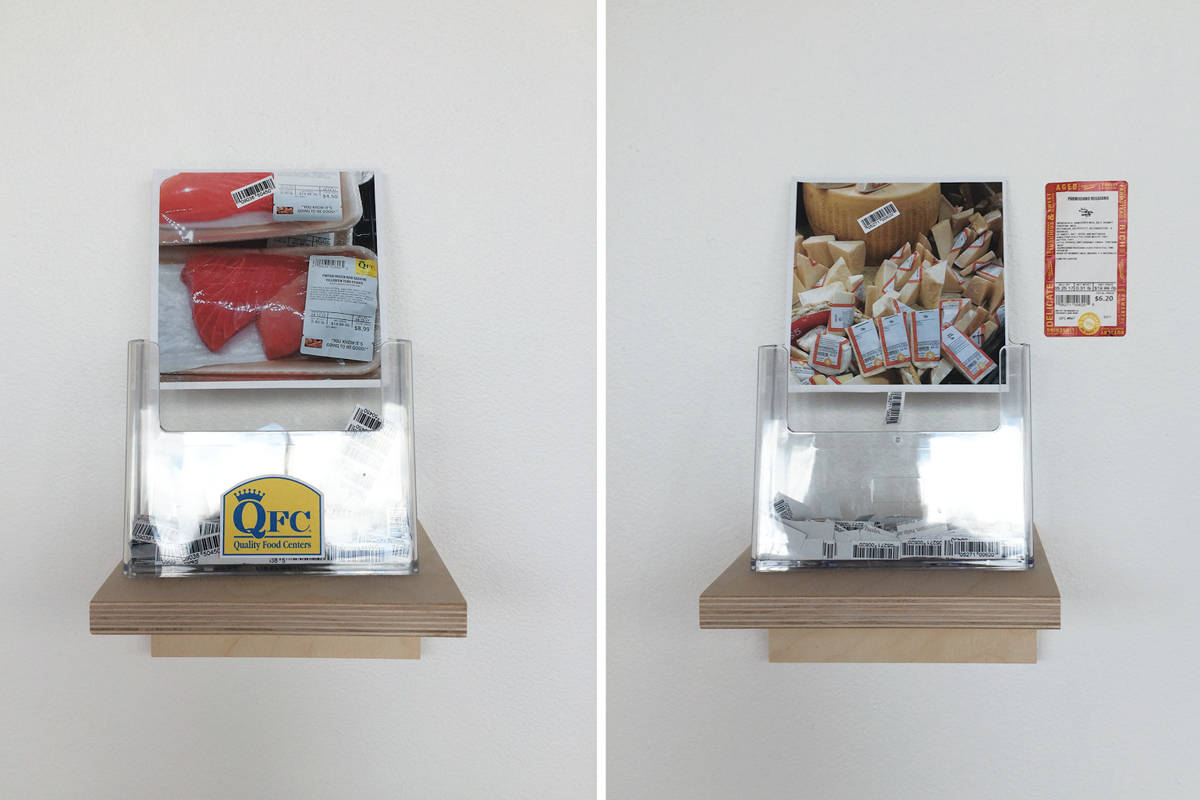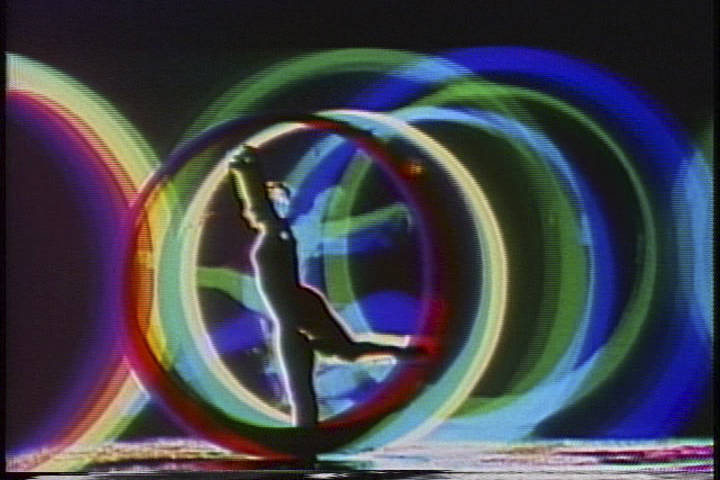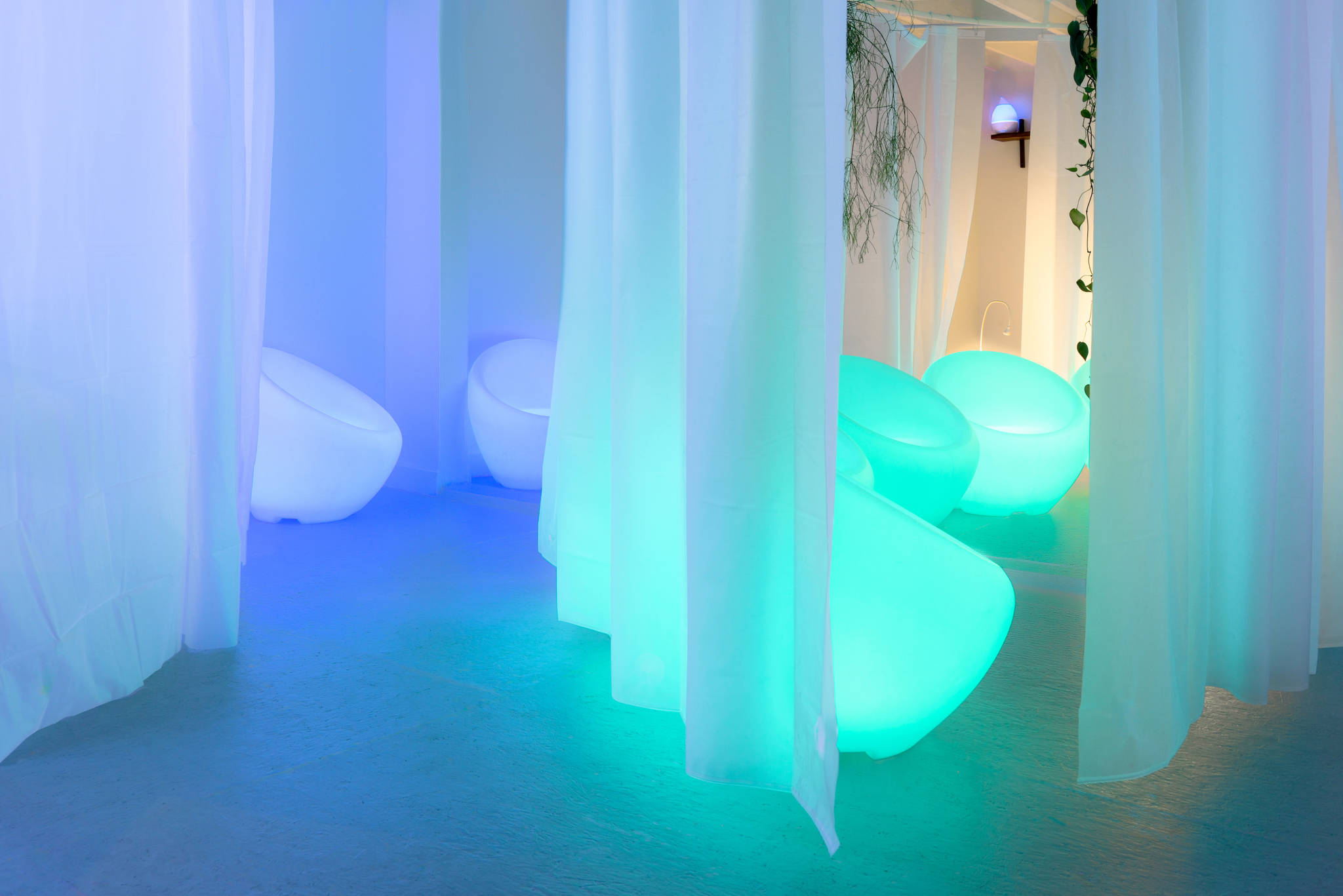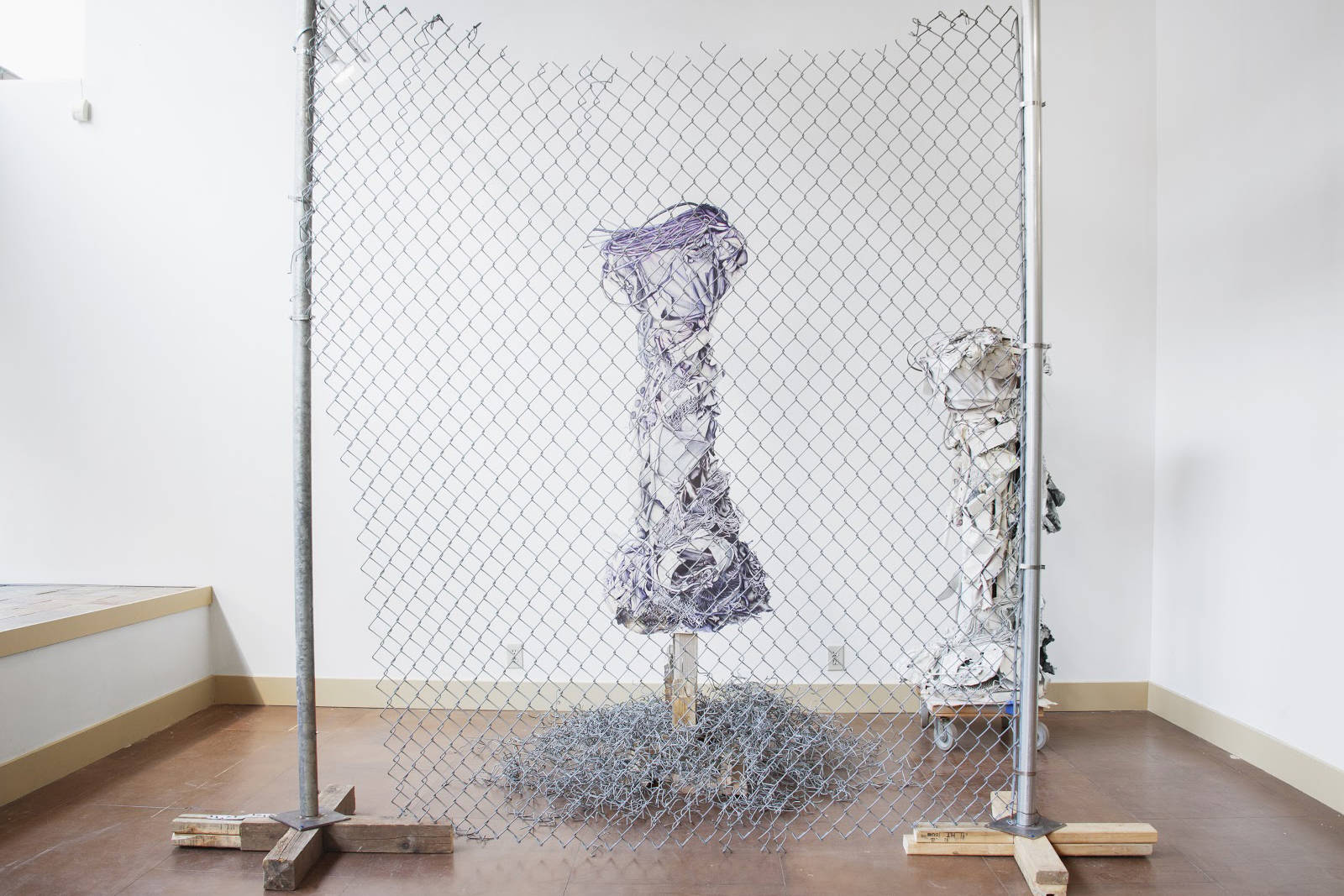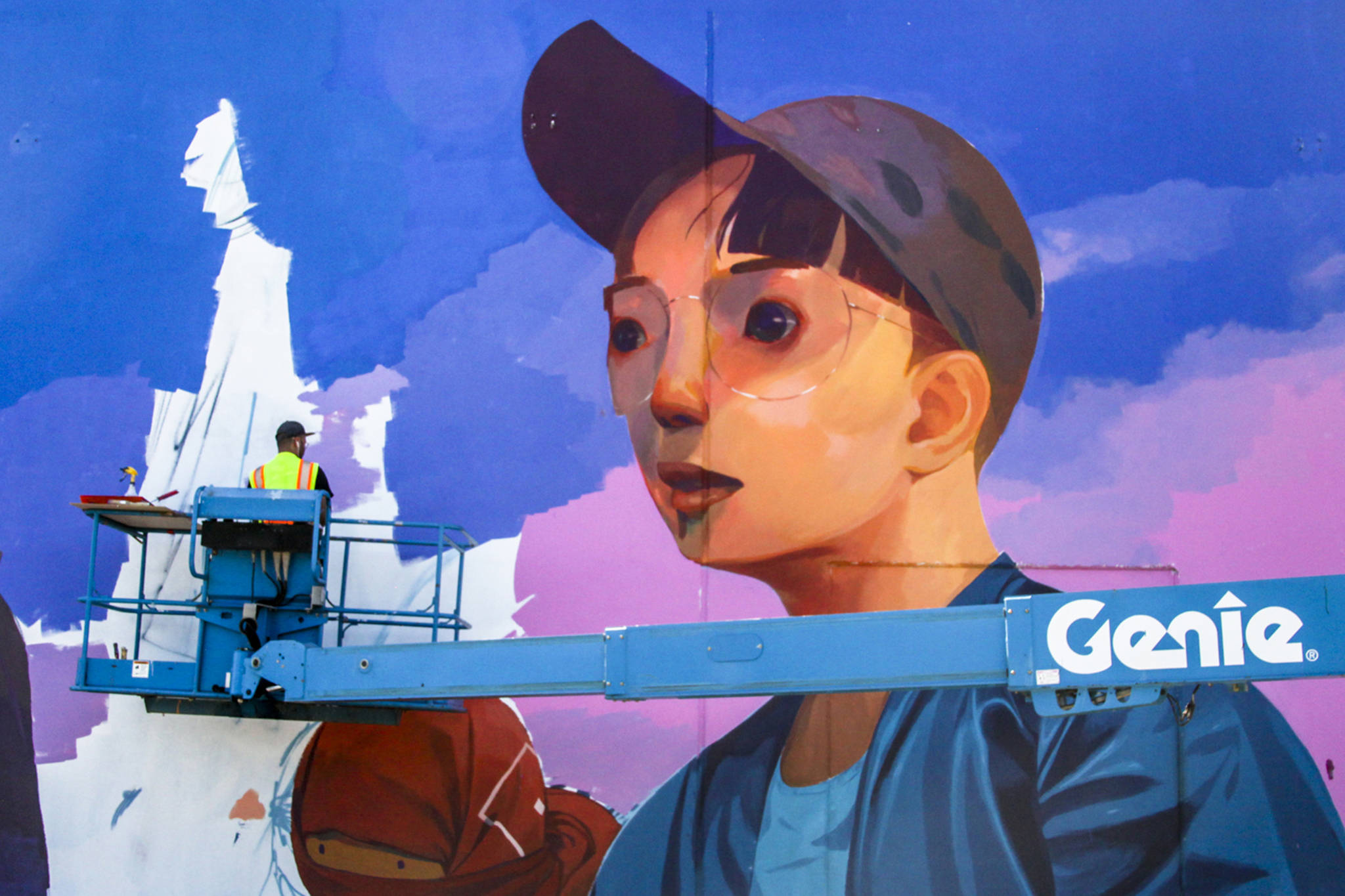Above the receptionist the words “Mejor Vida Corp” are arched over a handshake graphic, emblazoned in silver vinyl on the wall. The receptionist asks if I would like a student ID card. She takes my photo with a Polaroid Instax, then meticulously crops it with scissors, affixes it to a card with craft glue, stamps it in numerous places, and pushes it through a laminator. The card, she explains, is useful anywhere student discounts are offered. There’s my photo, next to the words Extensión Universitaria and estudiante t. completo—“full-time student.” I’m not a full-time student anywhere.
Mejor Vida Corp (“Better Life Corporation”), a project by artist Minerva Cuevas, distributes products for cheap or free, such as cleaning services, self-stamped envelopes, and subway tickets. At the current exhibition at Seattle University’s Hedreen Gallery, you can get a student ID card, QFC barcode labels for cheaper prices, or a personalized letter of recommendation. The receptionist, Hedreen gallery assistant Kelsey Siegert, writes me a letter on SU letterhead. Generic and pre-signed by Hedreen’s curator Amanda Donnan, whom I have never met, it reads that she has “been witness to [my] intelligence and competence.”
Minerva Cuevas is a conceptual social-practice artist who lives in Mexico City. Several of her works appropriate the language of branding and advertising for anti-consumerism purposes as a form of culture jamming. Donnan, who initiated MVC’s Seattle headquarters, tells me she was drawn to the project because “it offers everyone small ways to exercise agency and subvert the system through acts of micro-sabotage.” Since its start in 1998, MVC has issued thousands of student ID cards, subway tickets, and other services. Participants, of course, assume full responsibility for the use of these services. I ask Donnan about the potential risk to participants, and she says “there has not been any blowback in the 20 years MVC has been operating.”
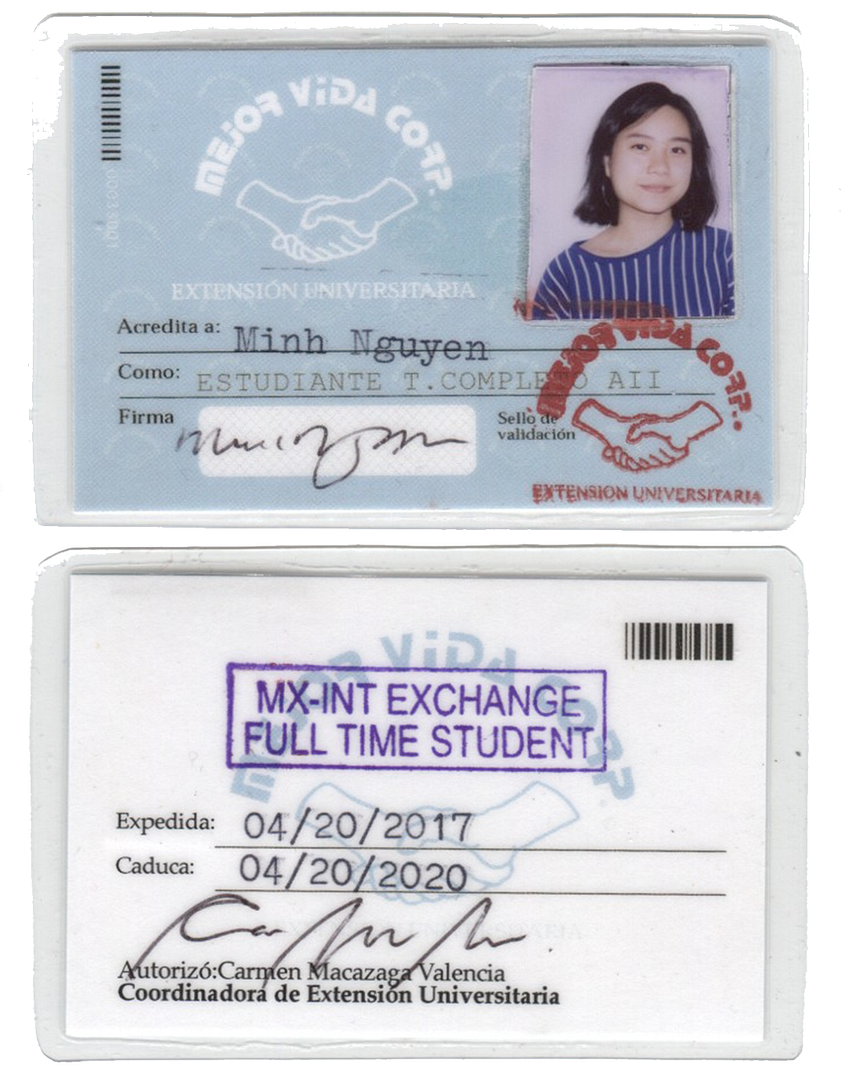
Customized student ID card from Mejor Vida Corp.
To reach out to those who could benefit most from these services, Donnan advertised the show on Craigslist and for the opening hired a sign-spinner, who swirled a cardboard arrow outside the gallery: “Yes It’s FREE.” Donnan even worked with Moises Himmelfarb, cultural attaché at the Mexican Consulate in Seattle, who sent an announcement through its networks. “Himmelfarb said that the undocumented immigrants who come to the Consulate seeking assistance could benefit from MVC’s student IDs. Apparently many people want any form of photo ID they can get, and the Consulate can’t process them all.”
Social-practice art often blurs the lines between performance, activism, and community organizing, where artists often assume the role of social-service providers. MVC is reminiscent of Rirkrit Tiravanija’s seminal 1992 exhibition Untitled (Free) at 303 Gallery in New York, where he served visitors rice and Thai curry. The genre is hotly debated: While some praise its de-emphasis of art objects in favor of direct responses to social and political issues, others criticize it for putting an aestheticized spin on nonprofit work and reducing political organizing to a symbolic gesture.
Whether you agree that MVC meaningfully disrupts the transactional exchange, the exhibition is here if you want to save a bit on food or need a letter of recommendation for a job. And maybe that’s enough. The project, for Cuevas, is about the “latent possibility of revolt implicit in the everyday.” Her revolt involves devising ways to make our lives easier, in a society where people rarely give without expecting something in return.
